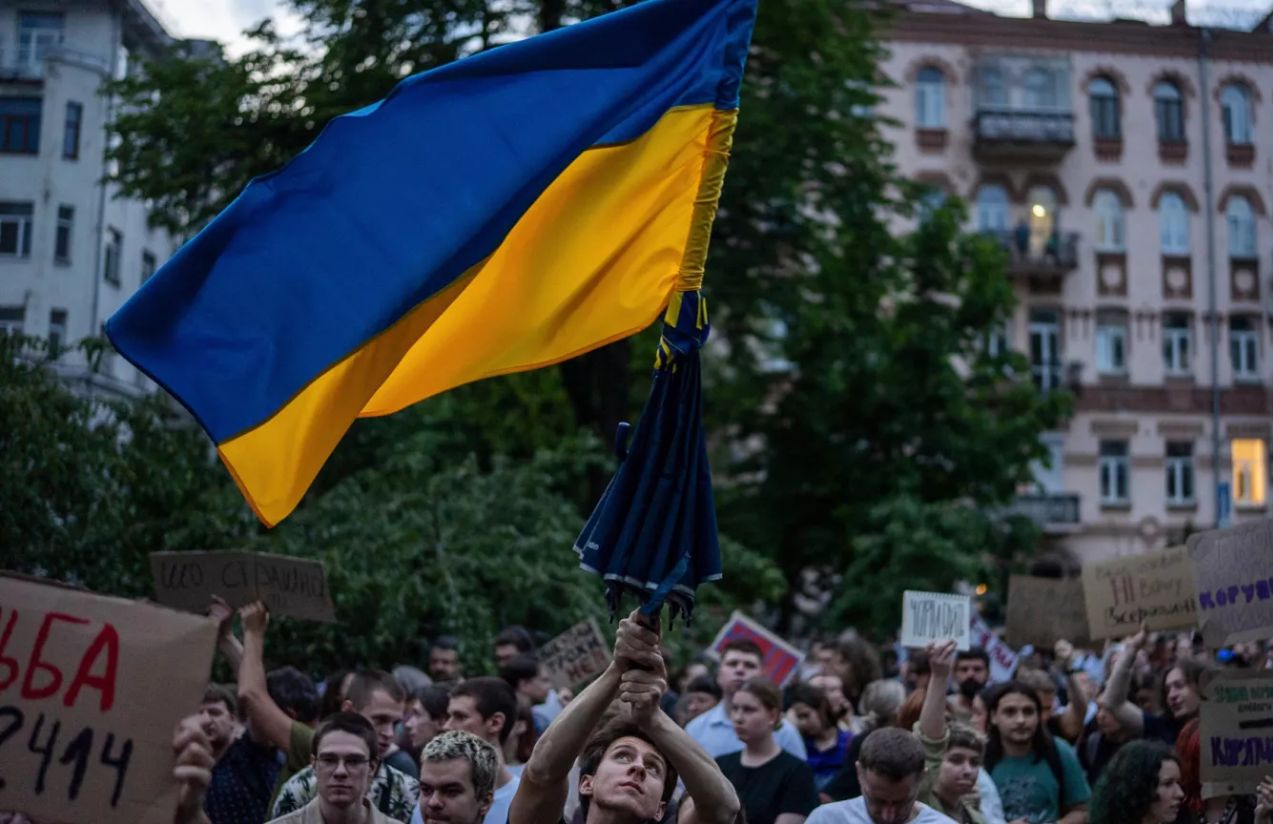Thousands of Ukrainians took to the streets on Wednesday in Kyiv, Lviv, Dnipro, and Odesa to protest a controversial law pushed by President Volodymyr Zelensky that reduces the independence of two key institutions: the National Anti-Corruption Bureau (NABU) and the Specialized Anti-Corruption Prosecutor’s Office (SAPO).
The reform, fast-tracked through parliament and signed by the president, transfers control of these agencies to the politically appointed Prosecutor General, sparking alarm among civil society activists both in Ukraine and abroad.
Government officials defended the move as a necessary step to counter alleged Russian infiltration and streamline legal proceedings, accusing the agencies of leaking information to the Kremlin. However, critics argue that placing these institutions under state control could stall investigations into high-level officials and damage Ukraine’s democratic credibility, which has grown since the 2014 Euromaidan revolution.
Organizations like Transparency International, the European Union, and the G7 have warned that the reform could jeopardize Ukraine’s EU accession process and risk future financial aid. In response, European Commission President Ursula von der Leyen has demanded explanations and corrective action within two weeks.
Why is this a turning point for Ukraine?
This marks the deepest political crisis since Russia’s 2022 invasion, as public discontent challenges the unspoken national unity pact formed during wartime. Some observers compare this to a drift toward authoritarianism, raising concerns reminiscent of the era under Viktor Yanukovych.

